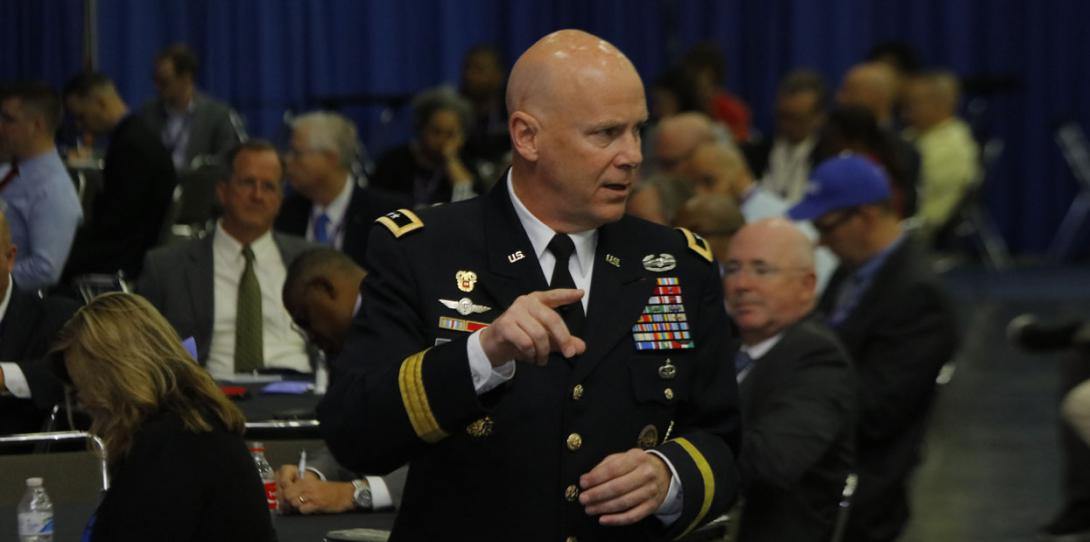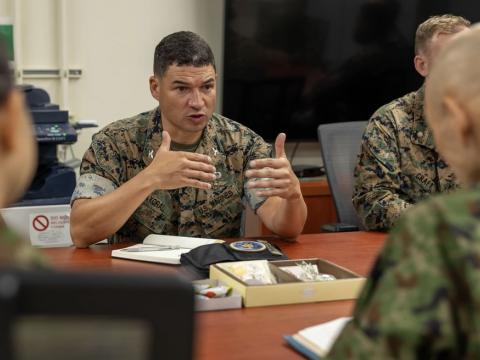A Holistic Approach to Cyber Training
Faced with unending cyber attacks that are increasing in sophistication and coming from all types of adversaries, the U.S. Army Cyber Center of Excellence is preparing its best defense: cyber operators. With a dedicated section of the Army’s force that focuses only on cyberspace operations, the service must continue to fill the ranks and train cyber operators, said Maj. Gen. John Morrison Jr., USA, commanding general, U.S. Army Cyber Center of Excellence (CoE) and Fort Gordon.
The general shared his perspective of the Cyber CoE and the Army’s latest efforts in defensive cyber warfare on Wednesday at the AFCEA Defensive Cyber Operations Symposium (DCOS) in Baltimore, Maryland. Gen. Morrison is the proponent inside the Army for the development of cyberspace, electronic warfare and some of the service’s network capabilities. He also is responsible for the training and education of officers, warrant officers, enlisted soldiers and civilians. So far, although challenges remain, he is happy with the initial steps in developing the cyber mission force.
“From an Army perspective all of our teams that we were directed to build as part of the cyber mission force are now FOC [full operational capability],” the general said. “We’ve established a school so that we can actually train and educate our cyber operators.”
The cyber school is training all three cohorts–officers, warrant officers and enlisted soldiers–and doing so beginning at the entry level. “This is key,” Gen. Morrison said. “We are taking young talent off of the streets, training and educating them. That is pretty unique.” Moreover, there is not much of a difference in the training of the reserves component of cyber, the general noted, aside from conducting the training in three phases to accommodate the reservists’ schedules. “The Army is a total force, and they are absolutely integral to the cyber mission force,” he said.
However, the school is only at its initial operating capacity. “That is mainly because we lack some of the facilities that we need to do some of the classified training,” the general shared. In addition, while the Army has had success in attracting and recruiting talented people to become cyber operators, the challenge will be in keeping them, the general said. “We are spending a lot of money and a lot of time to provide very, very high-end training,” he noted. “The key is how to retain folks.”
He also stressed that cyber curriculum presents both offensive and defensive capabilities, so cyber operators will able to handle any situation. “You don’t just train infantry to attack, and it’s the same construct with cyber operators,” he explained. “We want to educate folks so when we throw something at them they can figure out.” The general purported this training approach has become the joint standard.
Gen. Morrison acknowledged that this is a different model than usual for the Army, which he noticed during a recent Army inspection of the cyber school. “The Army wants to do things in a green way,” he said. “But cyber does it in a purple way, because if we have a seat open [in the cyber school], we offer it to the Joint Forces.”






Comments